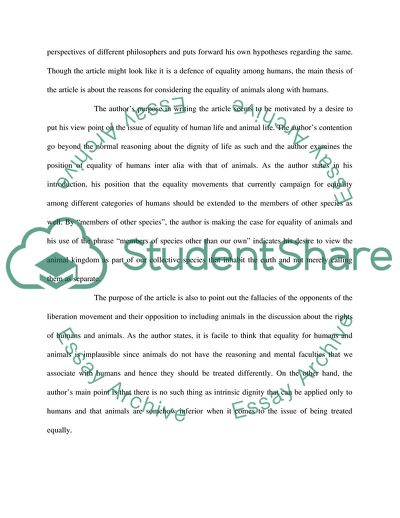Cite this document
(Critical Commentary on Artical Related to Philosophical Bioethics by Assignment, n.d.)
Critical Commentary on Artical Related to Philosophical Bioethics by Assignment. Retrieved from https://studentshare.org/social-science/1729006-critical-commentary-on-artical-related-to-philosophical-bioethics-by-peter-singer-all-animal-are-equal
Critical Commentary on Artical Related to Philosophical Bioethics by Assignment. Retrieved from https://studentshare.org/social-science/1729006-critical-commentary-on-artical-related-to-philosophical-bioethics-by-peter-singer-all-animal-are-equal
(Critical Commentary on Artical Related to Philosophical Bioethics by Assignment)
Critical Commentary on Artical Related to Philosophical Bioethics by Assignment. https://studentshare.org/social-science/1729006-critical-commentary-on-artical-related-to-philosophical-bioethics-by-peter-singer-all-animal-are-equal.
Critical Commentary on Artical Related to Philosophical Bioethics by Assignment. https://studentshare.org/social-science/1729006-critical-commentary-on-artical-related-to-philosophical-bioethics-by-peter-singer-all-animal-are-equal.
“Critical Commentary on Artical Related to Philosophical Bioethics by Assignment”. https://studentshare.org/social-science/1729006-critical-commentary-on-artical-related-to-philosophical-bioethics-by-peter-singer-all-animal-are-equal.


